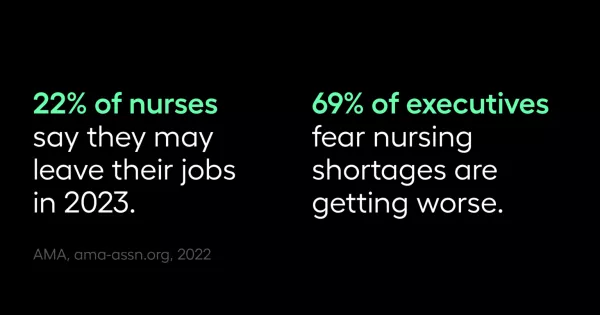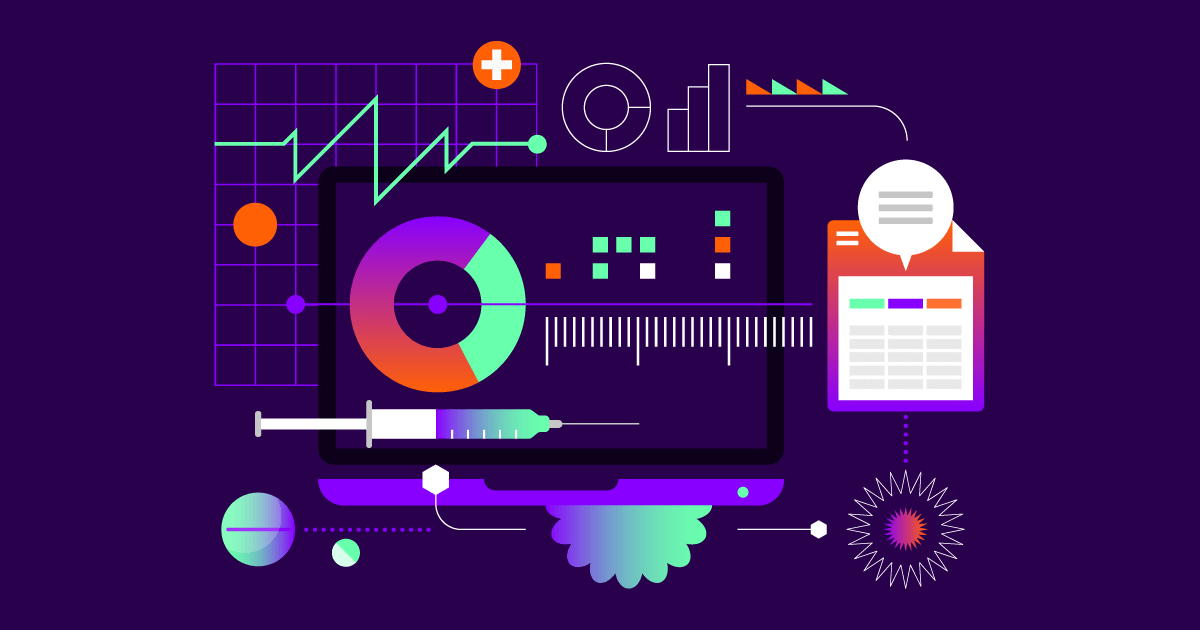New challenges in healthcare emerged this year


Healthcare’s post-pandemic reality is a strained and exhausted system. It’s facing an uphill battle to provide high quality care as more and more challenges arise including inflation and a winter “tripledemic” of COVID-19, flu, and RSV that threatens to overwhelm hospitals and burnt out physicians.
ARCADIAN INSIGHTS
Michael Meucci on seeing the opportunity for innovation amidst crises in healthcare
Unfortunately, my mother was recently hospitalized for nearly a month, giving me a unique view into the healthcare system — a view that I'm unaccustomed to despite spending most days collaborating with health systems and health plans. Luckily, she's home and on the mend — but the experience was eye opening.
She had multiple physicians, each providing instructions — most often verbally — and often times in conflict with the prior set of instructions. While she had a great team, there were a lot of voices — a hematologist, a colorectal specialist, a hospitalist and an infectious disease specialist. I had no access to her medical record, so it became my job to ensure that I was in her room during the five minute window where each physician would round to understand, clarify treatment plan, and advocate on her behalf.
Mom was at a busy facility that clearly was at or near capacity. Her care team didn't have the time to huddle, share notes, and put together an easy-to-understand care plan for their patient and her family. They relied solely on whatever notes were in their EHR and made split-second decisions based upon the latest information. Watching this, I wondered if we've gotten to the point where we're stretched so thin that we rely too much on technology. Is the patient experience suffering because of it?
I get it. Health systems have very low operating margins to begin with. They're walking this tightrope. Labor costs have sky rocketed given the labor shortage resulting from COVID workforce departures. In a lot of cases hospitals are not operating at full staff levels because they can't afford to. They're balancing the optimal number of staff and optimal number of procedures to minimize losses.
Some of this will need to be solved by reimbursement policy, which needs to push more work into value so that hospitals get paid for the quality of care outcomes they deliver. We also need to look at it in terms of automation. Is this moment in time a chance for more hospitals to adopt better technology? A lot of the technology we've implemented into healthcare has actually slowed down or reduced productivity. Now granted, EMRs and other technology have arguably made care much safer and better, but they're not productivity maximizers.
We're at a crossroads where the questions become: Does this labor shortage allow us to revisit our mode of operating? How can we improve the patient care experience through technology? Is there a way to use telehealth more effectively? Can more non-physicians deliver primary care under the supervision of a physician? Not to mention, how can we educate people to be better, more activated patients? This is a time to question traditional norms so we can move through this downturn toward a new reality where hospitals can operate more healthfully.
Today, doctors are spending only minutes with each patient every day. The workload is spread across multiple doctors and they need someone to coordinate care between all of them.
Technology has brought us a long way, but it still has work to do in giving providers their time back and delivering on the promise of an exceptional patient experience. Is there a place where AI can notify a multi-disciplinary care-team that it's time to take a timeout and have a conversation, not dissimilar to how we often suggest "taking things off email and having a meeting." This supposes that there's time and space for these huddles — but could this be made easier so care teams can tend to the patients that need care most?
Any time there's severe pressure on a sector is an opportunity for innovation. I think that's the moment we're in. Healthcare needs innovation to get through the crises we face today. This will require more collaboration and partnership among not only physicians, but also between established health systems, technology companies, and other players in the industry, as well as newcomers who are prepared to challenge our perspectives.
Stay well,
Michael Meucci
Chief Executive Officer
Arcadia
PRODUCT SPOTLIGHT
Arcadia Analytics: Unlock profound insights in the care continuum

Arcadia Analytics is a leading cloud-based healthcare data platform. Deliver better outcomes, reduce medical expenses, improve risk adjustment accuracy, and increase the quality of care through actionable data.
NEWS YOU CAN USE
Let’s put data to work to solve emerging challenges in healthcare
Health systems are the largest employer in over 25% of U.S. states. That’s 370K+ employees across thirteen states. This industry has a huge sway on the U.S. economy. [BUSINESS INSIDER]
U.S. healthcare spending increased to $4.3 trillion, or 18.3% of GDP. The percentage of GDP is lower than 2020, but still up compared to past years. [BECKER’S HOSPITAL REVIEW]
Patients’ out-of-pocket spending grows slower during a recession: compare 2.8% in 2008 to 6% in 2007. This paired with the stark reality that working class Americans often forgo treatment when money’s tight. [ANA ILLINOIS]
U.S. healthcare inequities cost about $230 billion per year. And that’s not the only cost that’s expected to rise in coming years. But there’s hope on the horizon as health systems find creative ways to address these challenges. [ANA ILLINOIS]
JOIN THE CONVERSATION
Watch On-Demand: Challenges in healthcare today
Every month, we get a pulse on the most important topics in healthcare and data.
Staff shortages, physician burnout, financial strain — this past year has been full of uncertainty. Join Arcadians Jessi Cardello and Jake Tinkham as they explore how to tackle these key challenges. Watch on demand, or subscribe to stay updated on future episodes.
